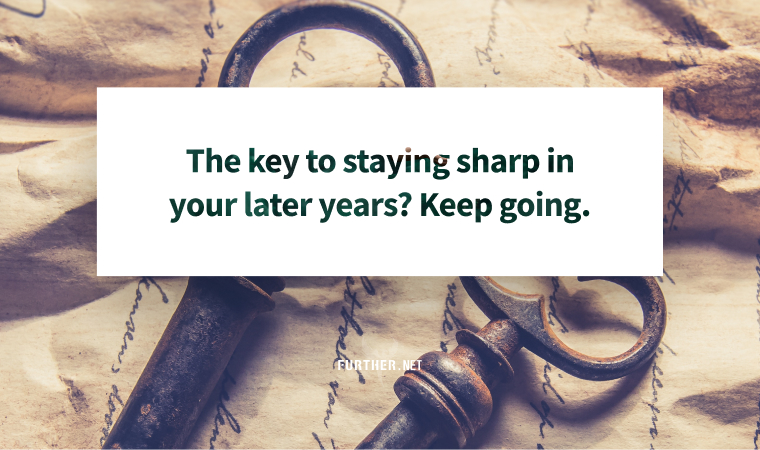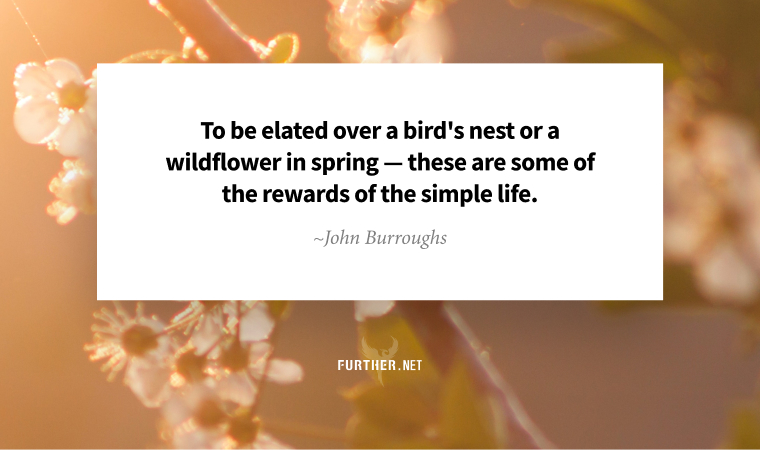
It’s hard to find good news about retirement these days. Part of the reason is that our popular conception of how retirement is supposed to be has been obsolete for four decades.
Longer lives and extended healthspans make the popular conception of retirement even less obtainable, at least at the young age of 65. But the real bad news isn’t financial; it’s the undesirable effects that retiring has on older adults.
It’s likely shocking for many to learn that retirement can lead to an earlier death (from various natural causes) as people lose purpose and connection. The most shocking unnatural cause is suicide after retirees fall into an debilitating rut of depression.
Now we have new research showing that calling it quits may cause your cognitive abilities to plummet. An international study found that memory decline “accelerated after retirement.”
Now, it’s not specifically a lack of doing work for money that leads to decline. But for many people, our careers offer significant intellectual engagement, connection, and status. It makes sense that the sudden absence of those elements can have an impact that leads us to lose some sharpness.
Here are some ways to counteract cognitive decline after retirement:
1. Stay Connected. A quarter of Americans ages 65 and older are socially isolated, which is a disheartening condition that adversely impacts your health. Keep connected to others by taking classes, volunteering, and hanging out with friends.
2. Stay Active. You already know that exercise is great for your brain and cognitive health at any age. It wouldn’t hurt to think of working out as your new job, and to skip the cart if you’re taking up golf.
3. Minimize Stress. Older people are already better at handling stress than younger people, but minimizing stressors should still be a priority. One key area to focus on is sleep, which is in itself protective against cognitive decline and a host of other health issues like depression and obesity.
4. Keep Working. It keeps coming back to this. Even if you don’t need the money, doing even a small amount of stimulating work gives you the benefits of connectedness and cognitive acuity.
The key to continuing to work on your own terms is to keep going with a satisfying role that you begin before you retire. Then you can do as much (or as little) work as you want based on your vigor and income requirements.
Our nearly 3 hours of training in the Mentor Method inside Well + Wealthy is perfect for starting a business at midlife that can continue well into your later years. That’s because it plays to your many strengths at later life stages — wisdom, knowledge, and crystalized intelligence.
When you join, you’ll get the 3 hours of training on starting your own solo business, plus monthly webinars, the entire education library, health and fitness challenges, and community interaction for one low membership fee.
Further reading:
Cognitive Decline After Retirement is a Universal Trend. Here are 4 Ways to Reverse It
Keep going-
P.S. New to Further? Join us here.
The Long Run
If you’re looking for a clear path to an extended healthspan and longer life, the evidence is in. The benefits of running, even if you start at midlife, are so numerous it borders on the ridiculous. But remember, it’s really some form of consistent cardiovascular exercise we’re talking about if you only run when chased.
10 Amazing and Evidence-Supported Health Benefits of Running (Outside)
The Gloves Are Off
I was the kind of guy who would drive back home from the gym if I forgot my gloves, until I read this article. Now my performance has increased across the board without gloves, especially on dead lifts where my grip is 100% better.
Should You Ever Wear Weightlifting Gloves? (Men’s Health)
Live Long Enough to Win
The longer your lifespan — and, just as important, the longer your healthspan — the more likely you are to be successful in whatever pursuit you choose. To gauge how you’re doing so far, perform this simple 10-second test.
If You Can Pass This Test, Science Says You’re Likely to Live Significantly Longer
Health Savings Accumulation
The amount individuals and couples who are 55 and older and not yet on Medicare can contribute to an HSA will climb to $5,150 and $10,300, respectively. That includes the $1,000 catch-up contribution they are already allowed to set aside in an HSA each year.
Couples 55 and older will be able to contribute more than $10,000 to health savings accounts (NBC News)
A Natural Way to Feeling Happier and Healthier

By Trudi Roth
Recently, we completed a backyard renovation, ditching a dying hedge and sad, brown lawn and replacing them with a patio surrounded by a luscious array of flowering shrubs, vines, and trees.
It’s not only a peaceful mecca for me, but the birds are enthralled. Nesting house finches, cooing mourning doves, and electric, iridescent hummingbirds flock to my yard. While I’ve never been into birding before, I now find them completely captivating.
It turns out there are good reasons that a little bird (or three) goes a long way: they’re naturally adept at uplifting your mood and health.
Nature Calls
You probably know that nature makes us happy — after all, countless scientific studies show how it supports a healthier brain and body. In fact, researchers from the University of Tokyo have recently identified more than 227 “non-material pathways” to greater well-being from interacting with nature, including spiritual fulfillment, personal development, exercise, relaxation, and recreation.
And here’s an important distinction about the word “nature”: ambitious outdoor activities aren’t the only way to experience it. In one study, researchers found that ideas about what nature is (and isn’t) may be why many adults feel disconnected from the natural world.
Adults in our research tended to view nature as wild, uncultivated, and set apart from human influences. Viewing and experiencing what respondents considered to be “authentic” nature required, in their minds, significant commitments of time and resources.
When I mentioned my backyard, you might have imagined me lounging there all day. But I’m mostly inside with the doors and windows open, so the healing power of nature can easily flit in.
Bird by Bird
A couple of new studies show that simply seeing or hearing birds can boost your mental health. As one of the studies’ authors, Emil Stobbe, points out:
The special thing about birdsongs is that even if people live in very urban environments and do not have a lot of contact with nature, they link the songs of birds to vital and intact natural environments.
More research shows that even listening to bird songs on headphones can reduce stress and anxiety by supporting “soft fascination,” where your attention is held as your mental fatigue is alleviated. And something as simple as looking up at a passing flock or pausing to listen to a chirping feathered friend can reduce stress-inducing cortisol and blood pressure and increase joyful feelings.
So, fight the urge to shut the window the next time a rambunctious bird is chattering up a storm. Otherwise, you’ll let an excellent opportunity to enjoy the benefits of present-moment awareness fly by.
Why birds and their songs are good for our mental health (Washington Post free article)
further: flashback

Chumbawamba – Tubthumping
Tubthumper, 1997
Maybe I’m mellowing with age, because I used to despise Tubthumping by Chumbawamba, and now I love it. Another thing I’ve gained with age — the wisdom to never mix a whiskey drink, a vodka drink, a lager drink, and a cider drink … because you actually might not get up again. (YouTube)
further: sharing

Further subscribers who share the newsletter with friends can gain three months of access to our exclusive membership community Well + Wealthy with only five referrals. Get your own free weekly dose of health, wealth, travel, and happiness advice here, and find out all the details on our referral program.
Thank you for sharing Further!
